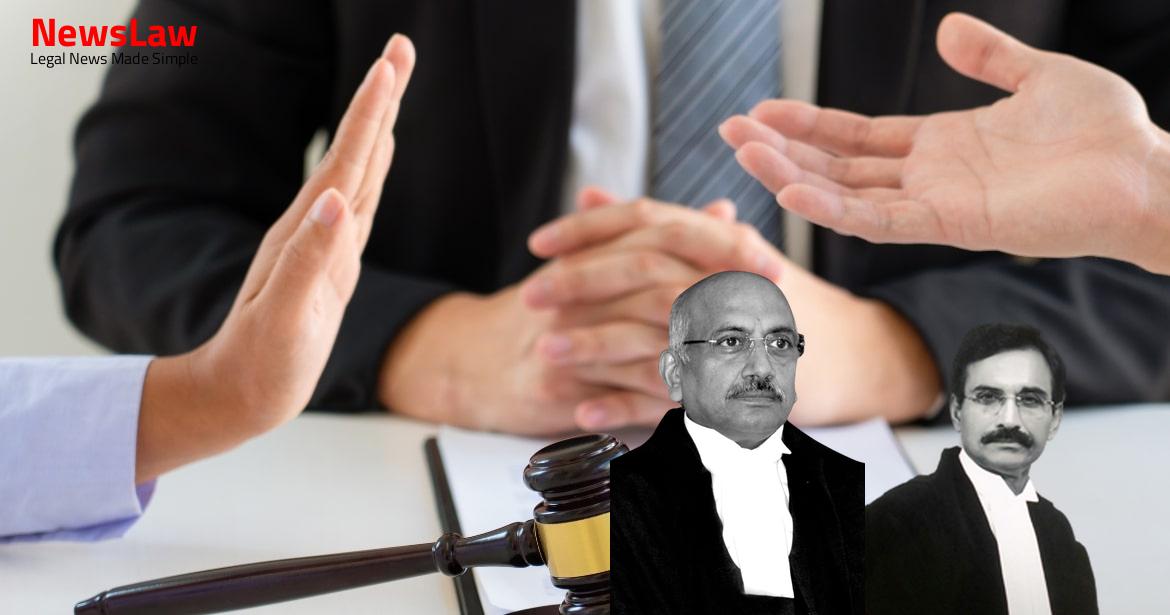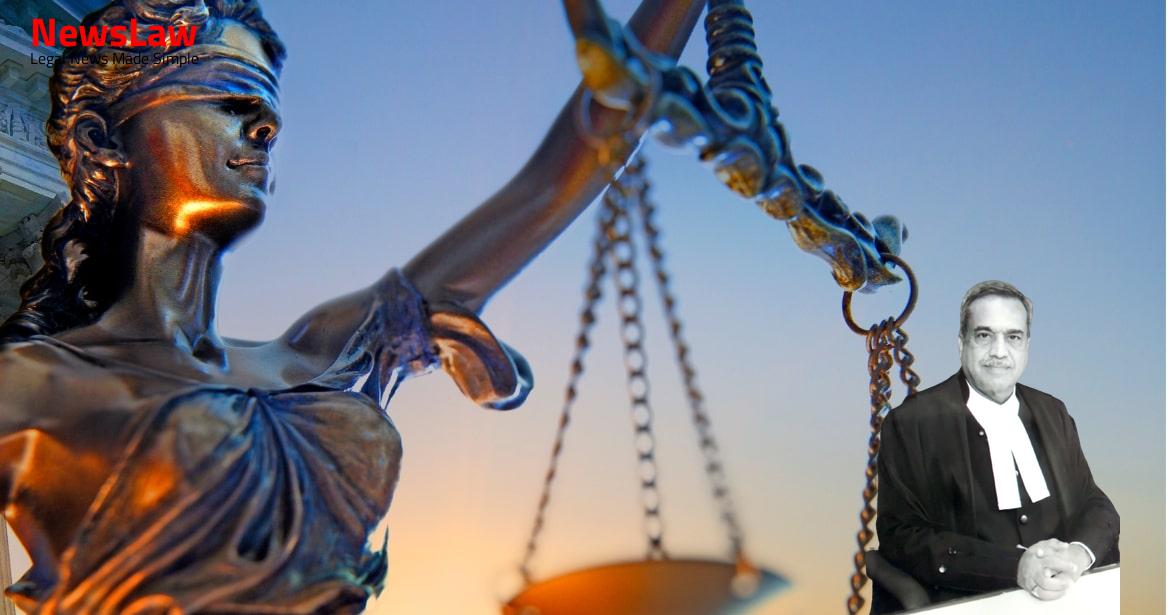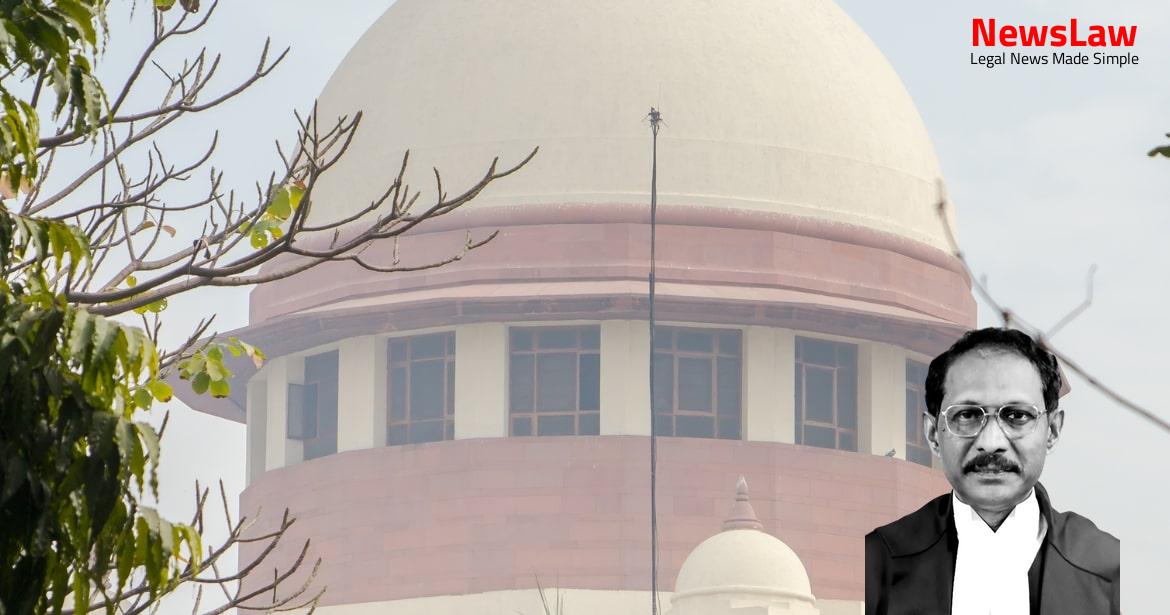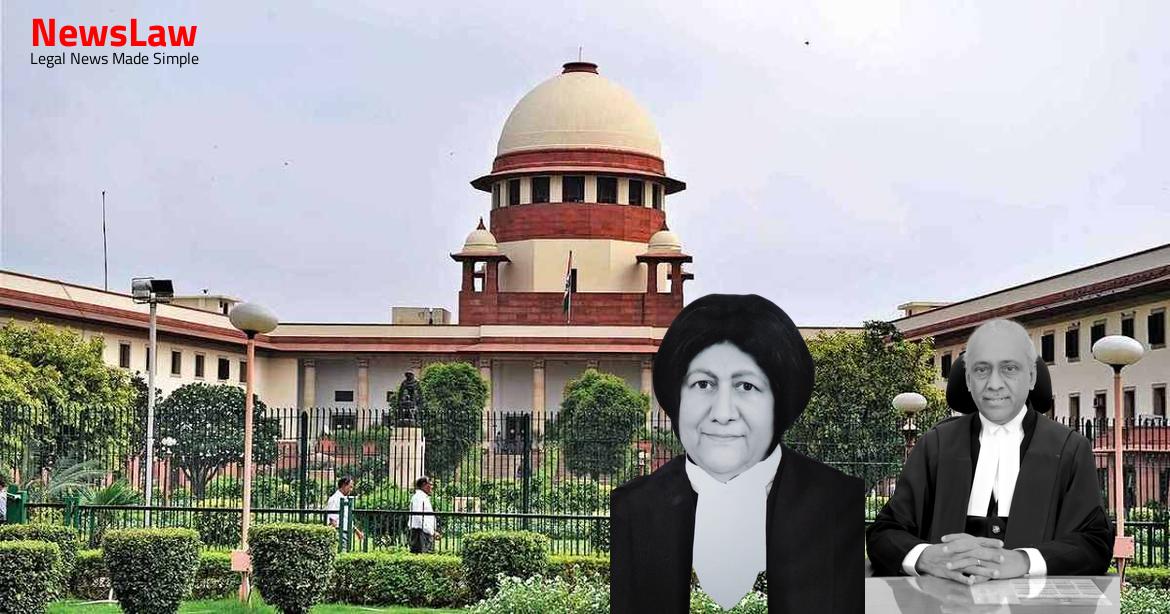In a significant judgment by the Supreme Court of India, the ruling on disability pension eligibility criteria in relation to military service connection has been clarified. The case delves into the intricate details of disability pension claims, highlighted by the petitioners’ challenges and the respondents’ submissions. This ruling sets a precedent for future cases involving similar circumstances, shedding light on the nuances of disability pension claims. Stay informed on this crucial legal development.
Facts
- An order granting disability pension to Dharambir Singh was challenged in the present appeal.
- Dharambir Singh joined Territorial Army on December 28, 1981, and was discharged on December 13, 1999.
- During a casual leave period, he met with an accident and suffered head injury with fractures.
- A Court of Inquiry found the injuries attributable to military service.
- Brigade Commander’s Report supported the attribution of injuries to military service.
- The Medical Board reported a disability of 30% and rejected the claim for disability pension.
- An appeal against the rejection was also dismissed by the Additional Directorate General, Personnel Services.
- Dharambir Singh then approached the Tribunal to contest the rejection of disability pension claim.
Also Read: Supreme Court Ruling on Dowry Harassment and Suicide Case
Arguments
- Learned counsel for the appellants cited two recent judgments of the Court: Renu Devi v. Union of India & Ors. and Union of India & Ors. v. Vijay Kumar No.3989606 P, Ex- Naik.
- The Court in Vijay Kumar case examined the admissibility of disability pension for Armed Forces personnel on leave.
- Referring to Para 520 of the Defence Services Regulations from 1986, it will be reproduced later in the discussion.
- The respondent in the case was involved in an incident where he lost control of his scooter while trying to save a cyclist, which resulted in injuries. However, it was argued that there was no causal connection between the disability-causing injuries and his military service.
- The claim of disability pension can arise under two heads: ‘injury’ and ‘disease’ cases.
- In disease cases, the opinion of the Medical Board is considered final for the disability pension claim.
- In injury cases, the finding of the COI (Court of Inquiry) is final and serves as the basis for granting disability pension.
Also Read: Case of Technical Equipment Officer Appointment Criteria Dispute
Analysis
- The Tribunal in Jagtar Singh v. Union of India & Ors. and Sukhwant Singh laid down guiding factors regarding disability pension in cases of injuries not causally connected to military service.
- The concept of ‘unmilitary activity’ was deemed vague and based on surmises and conjectures.
- The case involved an Armed Forces personnel slipping in darkness due to electricity failure during casual leave.
- The Division Bench in Barkat Masih concluded that injuries sustained during leave can still be eligible for disability pension if attributable or aggravated by military service.
- The Army Act, 1950 and related Regulations require a causal connection between injuries and military service for disability pension.
- Various judgments like Madan Singh Shekhawat, M.L. George, and Nand Kishore Mishra involved injuries during leave and their eligibility for disability pension.
- The Full Bench judgment in Khushbash Singh and the Division Bench judgment in Barkat Masih were considered in the case as well.
- Different cases like Vijay Kumar, Renu Devi, and Lance Dafedar Joginder Singh were referenced for disability pension eligibility.
- The concept of ‘unmilitary activity’ and its relevance to injuries were debated in the context of disability pension.
- Final decisions in cases like Ajit Singh and Sukhwant Singh were mentioned to show instances where disability pension was denied due to lack of causal connection to military service.
- The opinion of the Medical Board is final in determining if disability or death is attributable to military service.
- Regulation 423 of the Medical Regulations outlines the criteria for determining if an injury or death is connected to military service.
- The Commanding Officer’s opinion in a Court of Inquiry (COI) is focused on evaluating the conduct of the injured person and determining blame.
- Cases of self-inflicted injuries or injuries due to serious negligence are not automatically considered attributable to military service unless service factors are proven to be responsible.
- The COI serves the purpose of examining the nature of injuries and whether they occurred on or off duty.
- The Medical Board assesses the causal connection of injuries with military service and the extent of disability.
- Regulation 423 of the Medical Regulations requires a causal connection between the injury and military service.
- The Brigade Commander’s opinion is not always final in determining if an injury is attributable to military service – the Medical Board’s opinion holds more weight in such cases.
- Physical activities, even remotely related, must have a causal connection to military service to be considered for disability pension.
- Para 520 of the Defence Services Regulations emphasizes the role of the Medical Officer In-charge in providing necessary certificates for disability pension claims.
- Section 9 of the Act allows the Central Government to declare persons subject to the Act as being on active service.
- The Central Government declared that all persons subject to the Act shall be deemed to be in active service wherever they are serving.
- Leave rules state that casual leave and annual leave are considered as duty.
- A person on casual leave is not deemed to be actually on duty, but the 1982 Rules specify certain exceptions.
- According to the 1982 Rules, a person is on duty when proceeding to or returning from their leave station.
- An accident can be considered attributable to service even if the individual is not strictly on duty, if the risk was enhanced by their service.
- If an Armed Forces personnel is killed or injured because of their affiliation, they are deemed to be ‘on duty’.
- The 1982 Rules provide an expansive definition of ‘duty’ for Armed Forces personnel, including when on leave.
- The Division Bench of Delhi High Court in Vardip Singh & Anr. v. Union of India & Ors. emphasized on the importance of following proper procedures in government appointments.
- The judgement discussed the need for transparency and fairness in the selection process for government positions.
- It highlighted the significance of upholding the principles of natural justice and ensuring equal opportunities for all eligible candidates.
- The court pointed out the dangers of nepotism and favoritism in appointments, advocating for merit-based selection criteria.
- Overall, the Division Bench’s decision underscored the importance of maintaining integrity and accountability in the recruitment process within government institutions.
Also Read: Supreme Court Judgement on Transfer of Mining Environmental Clearances
Decision
- The Order passed by the Tribunal is set aside.
- The Original Application filed by Vijay Kumar is dismissed.
- There is no warrant for any change or modification in the case.
- The claim of disability pension is required to be dealt with accordingly.
- The Tribunal’s order is found to be not sustainable.
- The appeal is allowed as a result of the above discussion and conclusions.
Case Title: SECRETARY,GOVT.OF INDIA . Vs. DHARAMBIR SINGH
Case Number: C.A. No.-004981-004981 / 2012



